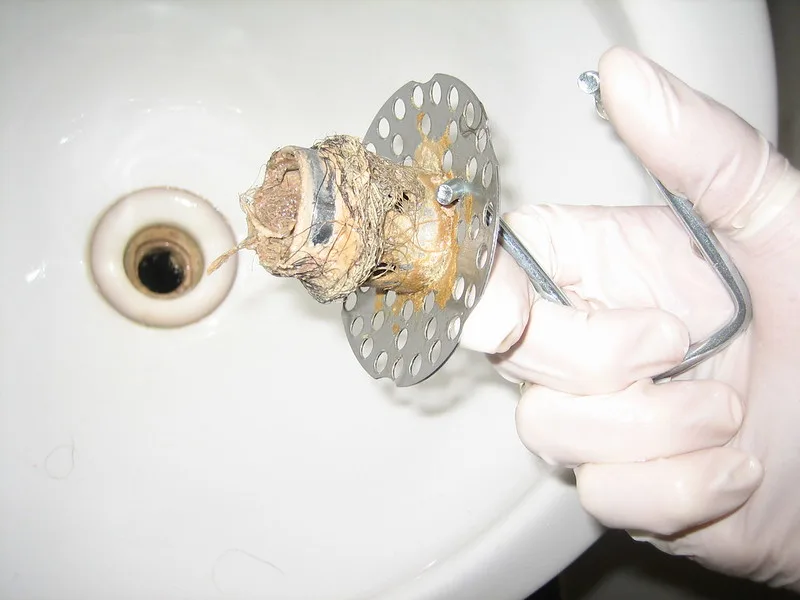A smoothly flowing drain is crucial to a well-functioning household plumbing system. However, clogged gutters can quickly disrupt the harmony, leading to inconvenience and potential damage. Understanding the common causes of clogged drains and adopting preventive measures can save you from the hassle of dealing with a plumbing disaster.

In this article, we’ll explore the primary culprits behind clogged drains and provide practical tips to keep your drains clear and flowing freely.
One of the leading causes of clogged drains is the accumulation of grease. Cooking oils and fats may seem harmless when liquid, but as they cool down, they solidify and adhere to the inner walls of your pipes. Over time, this buildup can constrict the flow, leading to stubborn clogs. To prevent grease-related clogs, avoid pouring cooking oils down the drain. Instead, collect them in a separate container and dispose of them properly.
Another common culprit for clogged drains is the combination of hair and soap scum. In bathroom drains, hair easily wraps around pipe fittings, while soap scum contributes to the sticky residue that traps hair and other debris. Installing drain screens or stoppers can effectively catch hair before it goes down the drain, reducing the chances of clogs. Regularly cleaning these screens will ensure they continue to function optimally.
Misuse of drains often leads to clogs caused by foreign objects. Items like paper towels, dental floss, and hygiene products are not meant to be flushed down the toilet or washed down the sink. Educate household members on proper disposal practices, and consider placing a waste bin in the bathroom to discourage the improper disposal of non-flushable items.
Hard water, rich in minerals like calcium and magnesium, can contribute to the buildup of mineral deposits in pipes. Over time, this can restrict water flow and lead to clogs. Regularly using a water softener can help prevent mineral buildup, extending the life of your plumbing system and reducing the likelihood of clogs.
Refrain from restricting routine drain maintenance, which is a surefire way to invite clogs into your plumbing system. Regularly flushing drains with hot water and a mixture of baking soda and vinegar can help break down accumulated debris and prevent clogs. Additionally, scheduling periodic professional drain-clearing services ensures a thorough inspection and cleaning of your plumbing system.
Clogged drains are a common household annoyance, but they can be easily prevented with vigilance and proactive measures. By avoiding the pitfalls of grease and fat buildup, hair accumulation, soap scum, food particles, and foreign objects, you can keep your drains flowing smoothly.
Remember, prevention is vital to avoiding the inconvenience and expense of a clogged drain. Should you find yourself in need of assistance, don’t hesitate to enlist the help of a drain clearing service to resolve any blockages swiftly. With these tips in mind, bid farewell to clogged drains and embrace the bliss of uninterrupted plumbing.